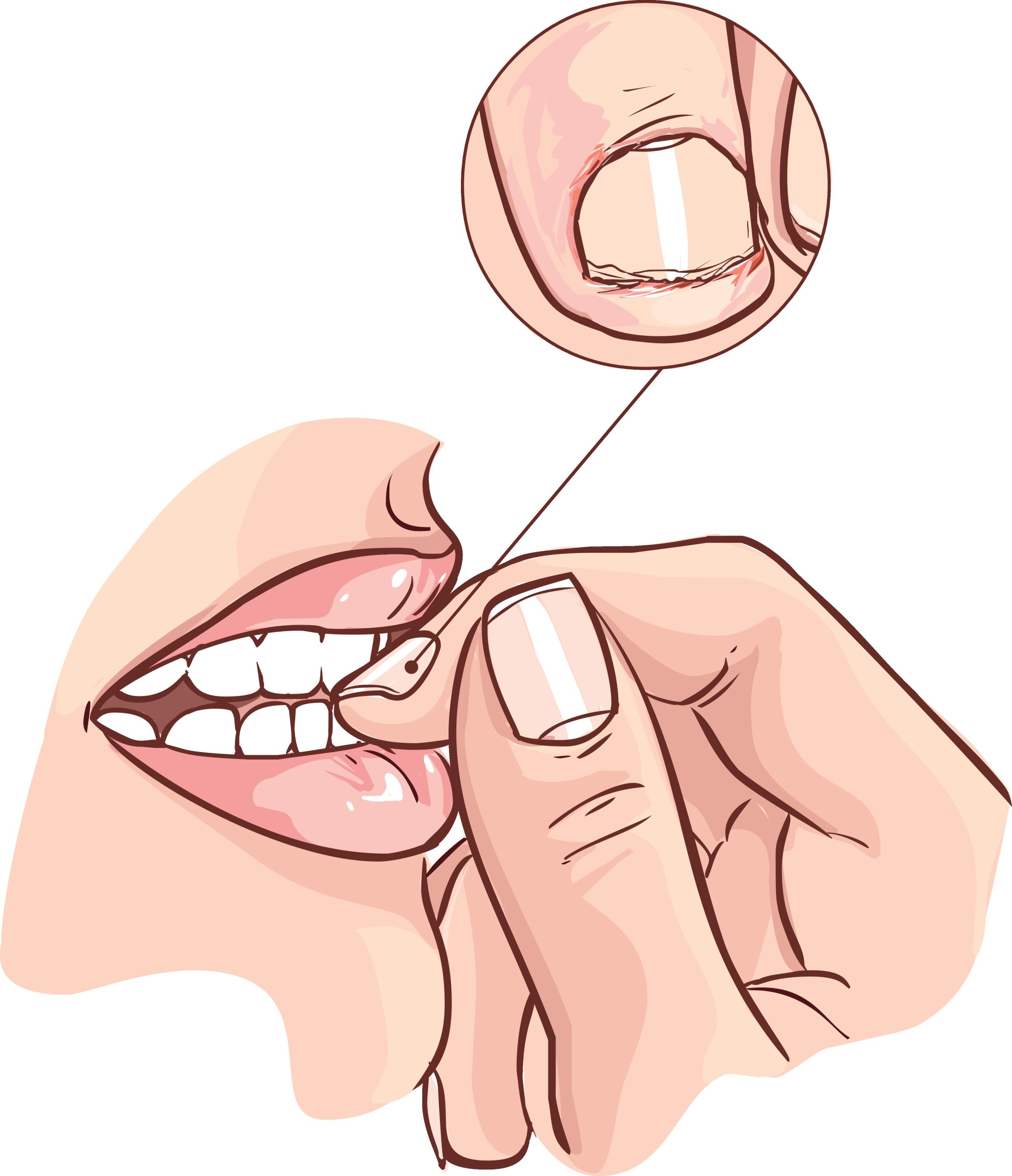There are many ways to stop people from biting their nails.
- Applying substances with a foul taste to their nails
- Establishing punishments
- Using their hands for other things
These methods can be ineffective or unsustainable. They may even cause more stress by causing people to seek stress relief.
The Habit Reversal Program is more effective at correcting nervous habits like nail-biting and thumb-sucking. It also works better for eyelash plucking, head-shaking, shoulder-jerking, and other nervous habits.
Motivational Training
If you do not want to change, then you won’t.
You may think that nail biting is harmless. It’s not. Nail-biting problems include:
- Damage, soreness or infection of your nails and surrounding skin
- Damage to your teeth
- Risk of infection from dirty hands in the mouth
Consider the benefits: more attractive and healthier nails and teeth; reduced risk of infection; and an increase in self-confidence.
If you do not believe it is possible, then neither will you change.
You can be confident that you will change your behavior if you learn specific methods.
Training in Awareness
If you don’t know what the problem is, then it’s impossible to change. Three simple techniques can help you develop self-awareness about your nervous habit.
Response Detection
Most people are unaware that they have been biting their fingernails for some time.
Think back to recent times when you bit your nails.
Notice it as it happens, not after it has happened.
Response Description
Explain the sequence of events to your friend, counselor or in a journal.
What are your hands actually doing?
Why do you do it? Nail-biting is often triggered by boredom, frustration and anxiety.
What are the implications?
What kind of self-talk do use to combat the habit? What do you think about it? What is your awareness of nail-biting habits?
Early warning detection
Look for early signs of nail-biting. These include moods, situations, and actions such as placing your hand near your mouth, or tapping your nail on your teeth.
In order to build a healthier plan of action, attach competing responses to these early indicators.
Competing response training
It is not sufficient to be aware. If nothing changes, then nothing will change.
A healthier lifestyle would make you happier and more satisfied.
Try progressive muscle relaxing (PMR). Try clenching your fist and relaxing for a few moments before you bite your nail. Relax your entire arm by flexing it. Relax your entire body by moving from your head down to your toes.
Fidgeting with objects is a temporary distraction. PMR can help you learn how to relieve stress safely and develop awareness and strength in other muscle movements.
Contingency Training
Plan ahead for future situations where you might experience nail-biting. Plan how to stop it, or what you will do if you catch yourself doing it. Use healthy coping strategies such as progressive muscle relaxation.







